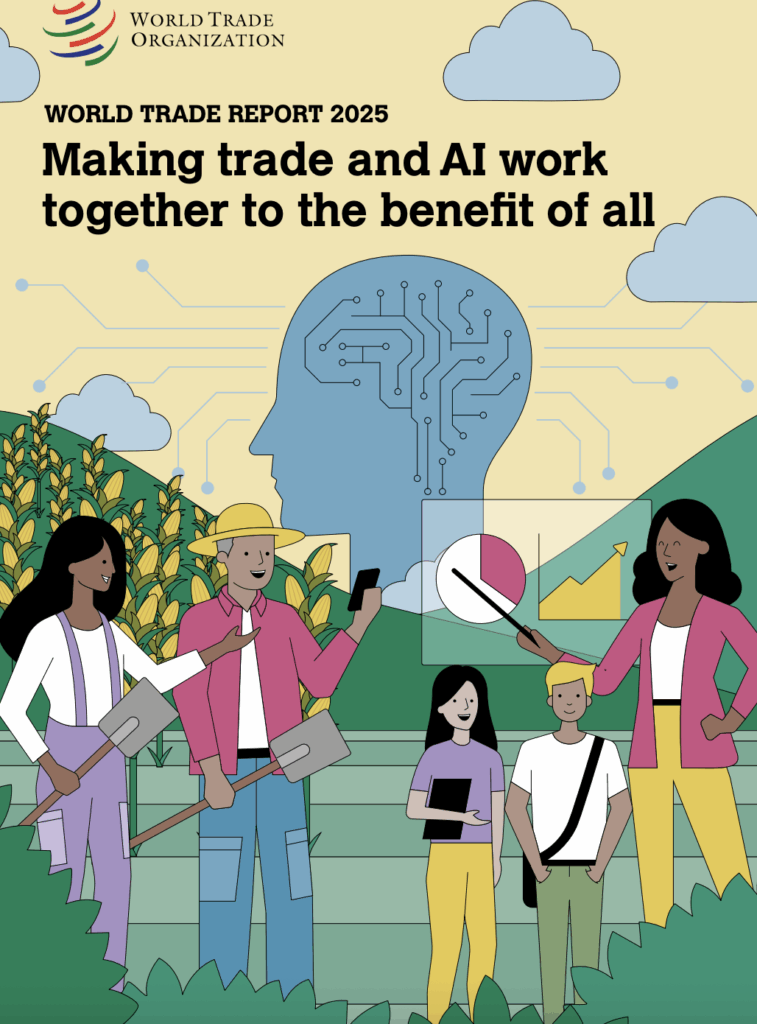WTO report notes AI’s potential benefit to trade if divides are addressed
The Report argues that AI could potentially boost global trade, but warns that it could also increase global inequality.

The WTO launched the 2025 World Trade Report, titled ‘Making trade and AI work together to benefit all’. The report argues that AI could potentially boost global trade by up to 37% and GDP by 12–13% by 2040, particularly through digitally deliverable services.
It notes that AI can lower trade costs, improve supply-chain efficiency, and create opportunities for small firms and developing countries. Still, it warns that without deliberate action, AI could deepen global inequalities and widen the gap between advanced and developing economies.
The report underscores the need for investment in digital infrastructure, energy, skills, and enabling policies, highlighting the importance of IP protection, competition frameworks, and government support.
A newly developed indicator, the WTO AI Trade Policy Openness Index (AI-TPOI), revealed significant variation in AI-related trade policies across and within income groups.
It assessed three policy areas relevant to AI diffusion: barriers to services trade, restrictions on trade in AI-enabling goods, and limitations on cross-border data flows.
Stronger multilateral cooperation and targeted capacity-building were presented as essential to ensure AI-enabled trade supports inclusive, sustainable prosperity rather than reinforcing existing divides.
Would you like to learn more about AI, tech, and digital diplomacy? If so, ask our Diplo chatbot!
